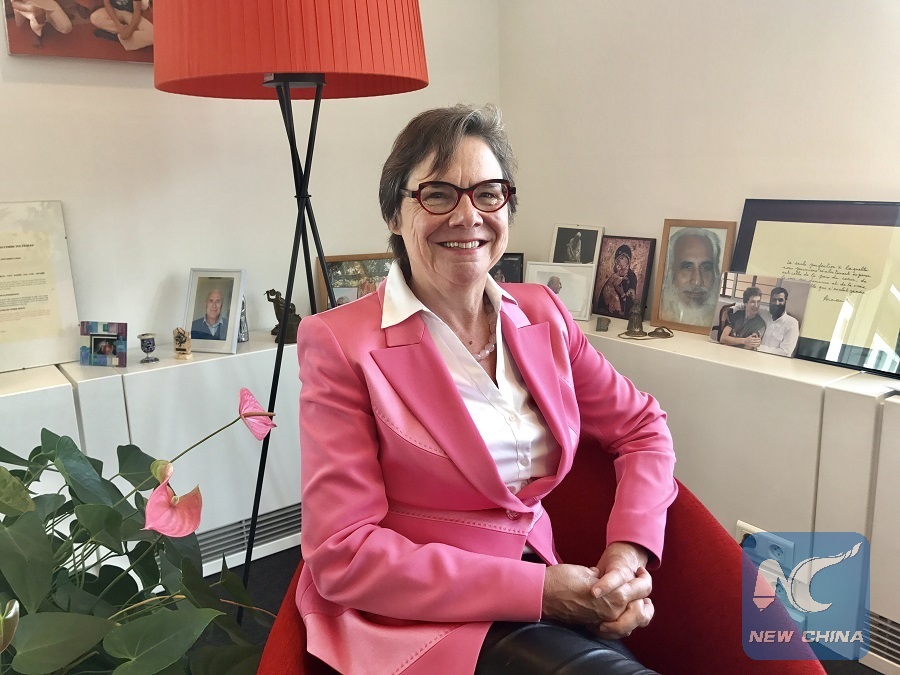
Martine Reicherts, the Director-General for Education and Culture (DG EAC), the executive branch of the European Union which is responsible for policy on education, culture, youth, languages, and sport, talked about the EU-China relations during an interview with Xinhua on April 20, 2017. (Xinhua/Diao Ze)
BRUSSELS, April 28 (Xinhua) -- China's Belt and Road Initiative is facilitating even closer links between China and Europe, and serves as a good example of the strengthened links between China and the rest of the world, a senior European Commission official has said.
More work should be done to strengthen the cultural interaction between all the countries along the silk road, Martine Reicherts told Xinhua in a recent interview.
Reicherts is the Director-General for Education and Culture (DG EAC), the executive branch of the European Union which is responsible for policy on education, culture, youth, languages, and sport.
Reicherts mentioned the ancient silk road, which for centuries had played a crucial role in the cultural interaction among peoples of China and Europe.
"The ancient Silk Road stood for more than just commerce. For centuries, it enabled people to move, cultures to blend, and knowledge to be exchanged," she said.
"Today's world is complex and full of uncertainty. It is now more important than ever that we never forget the significance of these connections and even strengthen them," she noted.
Last year, the European Commission and the Chinese government agreed to explore synergies between the Belt and Road initiative and its equivalent in the EU, the Trans-European Transport Network.
According to Reicherts, the Belt and Road Initiative will help trade not only by opening up new markets, but also reinforcing mutually fruitful connectivity efforts and people-to-people exchanges.
"I think before we make trade, it's also important that we know each other much better," she explained.
"That's why HPPD (EU-China High-Level People-to-People Dialogue) is so important, because we get to know each other and to be trusted. And on that basis, we will be able to strengthen the links between our two continents."
The HPPD, which represents a "third pillar" in the EU-China relations, building on the EU-China High-Level Economic and Trade Dialogue ("first pillar") and the EU-China High-Level Strategic Dialogue ("second pillar"), enjoys the same status as the other agreements.
"Up to now, we have achieved satisfactory results in all the main areas covered by the HPPD, namely education, culture and youth," she said. "And the EU would like to broaden the scope of HPPD activities in the future."
In addition, the EU official highlighted the better involvement of European enterprises in the Belt and Road Initiative.
"I think there is a need to make opportunities clearer for enterprises and organizations in Europe. And I'm sure that there are many more actors potentially interested in cooperating with Chinese counterparts," she said.

